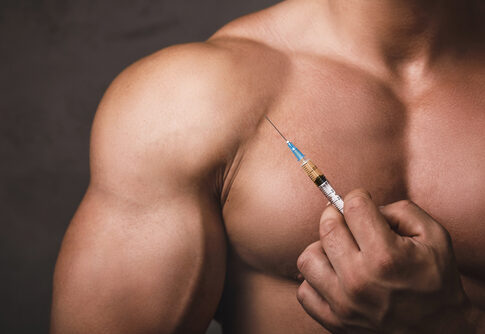Scientific research definitively debunks the persistent myth that anabolic steroids can alter a man’s sexual orientation, exposing how misinformation continues to fuel harmful stigma against both steroid users and LGBTQ+ communities.
Medical Science Rejects Sexual Orientation Claims
Endocrinologists and neuroscientists unanimously agree that anabolic androgenic steroids cannot change sexual orientation in adult men. While steroid hormones influence sexual differentiation during early brain development in animals, this developmental process bears no resemblance to adult steroid use. Medical researchers emphasize that conflating animal studies with human adult behavior represents a fundamental misunderstanding of both endocrinology and human sexuality. The scientific consensus remains clear and unwavering on this issue.
Real Patterns Behind Steroid Use in LGBTQ+ Communities
Recent studies reveal that gay, bisexual, and queer men use anabolic steroids at disproportionately higher rates than heterosexual men, but the causation flows in the opposite direction of the myth. These men turn to steroids due to intense body image pressures, muscle dysmorphia, and social expectations within certain community segments. Healthcare providers report that LGBTQ+ steroid users face unique challenges accessing nonjudgmental medical care, often encountering providers who don’t understand their specific health needs or cultural context.
Distinguishing Sexual Function from Sexual Orientation
Steroid users may experience changes in libido or sexual function, but these physiological effects have nothing to do with sexual orientation. Some anecdotal reports conflate increased sex drive or altered sexual behavior with changes in attraction patterns, creating confusion that feeds the persistent myth. Medical experts stress that libido represents a completely separate biological mechanism from sexual orientation. Understanding this distinction proves crucial for both healthcare providers and the public in evaluating steroid-related claims accurately.
Combating Misinformation’s Harmful Impact
The persistence of this myth creates real-world harm by stigmatizing both steroid users and LGBTQ+ individuals while hindering effective healthcare delivery. When healthcare providers encounter patients influenced by these myths, it complicates treatment approaches and may prevent individuals from seeking necessary medical attention. The misinformation also reinforces harmful stereotypes that undermine public understanding of both anabolic steroid effects and human sexuality, demonstrating why factual education remains essential for protecting vulnerable communities.
Steroids turning men gay 🤷♂️ pic.twitter.com/N6ZVrJX71H
— 🌋🌋 Deep₿lueCrypto 🌋🌋 (@DeepBlueCrypto) September 29, 2025
Moving forward, medical professionals emphasize the importance of evidence-based discussions about steroid use while rejecting unsubstantiated claims that fuel discrimination and misunderstanding in American communities.
Sources:
PMC: Wired on Steroids—Sexual Differentiation of the Brain
JAMA Network Open: Anabolic Androgenic Steroid Use Among Cisgender Gay, Bisexual, and Queer Men
Endocrinology: Hormones and Human Sexual Orientation
Nature: The Sexual Impact of Androgenic Anabolic Steroid Abuse
Sage Journals: Health Psychology Research on Steroid Use


